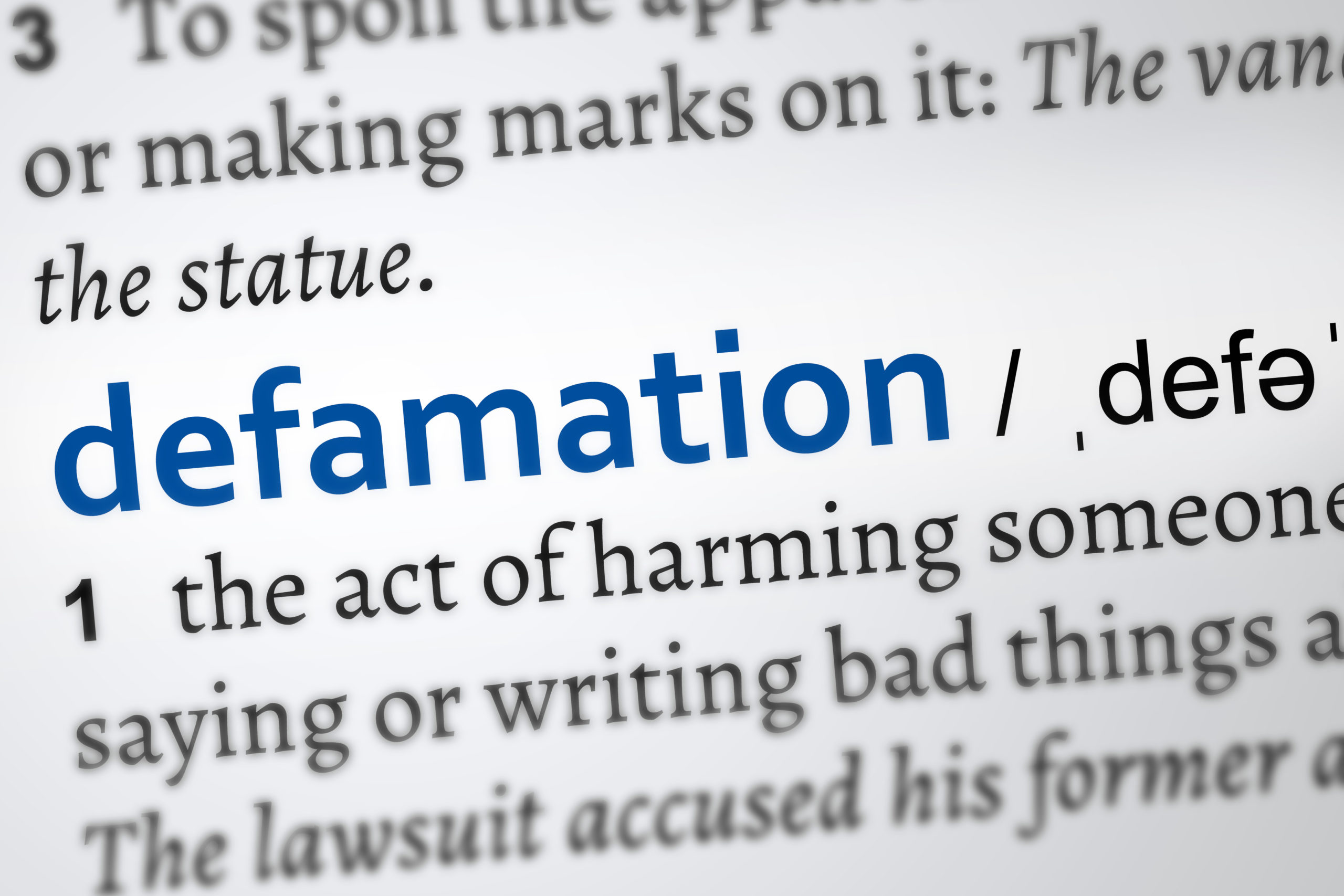Defamation is the action of damaging the good reputation of someone – the umbrella term for libel and slander. A person is said to be defamed when someone else publishes words or matter which have caused, or are likely to cause, substantial harm to a person’s reputation. The use of the term ‘published’, however does not mean that the statement has been printed.
Whilst there is no single example of what could count as causing harm to someone’s reputation, various suggestions have been made in the courts, including any material which:
– Discredits a person
– Lowers others’ estimations of them
– Causes them to be avoided or shunned
– Causes them to be exposed to ridicule, contempt or hatred.
In January 2014, the Defamation Act 2013 came into force, which introduced the requirement that the reputational harm needed to be ‘serious’. Further to this, where the claimant is a company, it will also need to show ‘serious financial loss’. This has created some uncertainty as to how these new requirements will be applied by the courts.
What Are Libel and Slander?
Libel and slander are both forms of defamation. The most basic difference between them is that slander is concerned only with statements published in a temporary or transient form (which usually means statements which have been spoken), however libel covers all published statements.
The victim of slander has to prove that they have lost money as a result of the slander. However, with libel, it is not necessary to prove a loss (if the victim is not a company). Therefore, it is possible for a victim of libel to sue somebody for a written insult even if it did not cause them to lose any money.
How Does Professional Indemnity Insurance Protect Your Business Against Defamation?
No matter how large or small a business is, it runs the risk of being sued for libel or slander if unfounded assertions are made against a third party. There are many examples of libel and slander claims within business situations, such as:
- A health and safety consultant may criticise a competitor, saying they are incompetent at their job, resulting in the competitor losing business.
- A business consultant says to someone that a business has been participating in illegal or unethical activities.
- An IT consultant sends an email to a potential customer in which they make spurious allegations regarding the quality of a competitor’s work, which causes the competitor to lose a client.
- A director promotes his company’s services by making derogatory comments about a competitor.
Regardless of the activities your business undertakes, it could be destroyed by legal costs and fines as a result of a defamation case. Professional indemnity insurance can cover the legal fees in defending your business against a defamation claim, as well as the compensation payments to the claimant.
To discuss the professional indemnity insurance policies that we can offer, and what it can cover against, please contact a member of our team.
